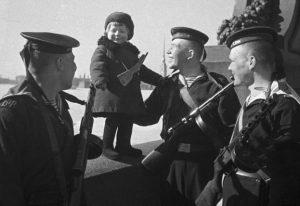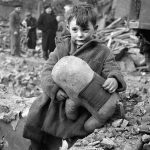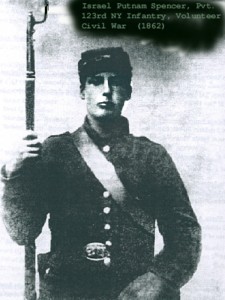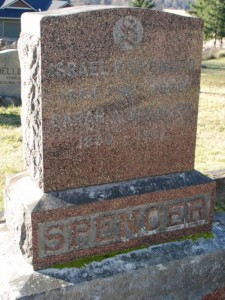hunger
 During World War II, many children lost their parents to hunger or bombings. Many of the orphanages were either overcrowded or non-existent. To save them from starvation, many Russian military units adopted the orphans. I’m not sure what the units did with the children while they were fighting, but my guess is that some of them wrote home to their wives and told them that they wanted to adopt these little cuties.
During World War II, many children lost their parents to hunger or bombings. Many of the orphanages were either overcrowded or non-existent. To save them from starvation, many Russian military units adopted the orphans. I’m not sure what the units did with the children while they were fighting, but my guess is that some of them wrote home to their wives and told them that they wanted to adopt these little cuties.
Two year old Lucy was adopted by Russian sailors of the Baltic Fleet after her parents died during the siege of Leningrad. Of course, she was too young to really remember her parents, and so whoever ended up adopting her would become her parents in her mind. Little is known about what happened to Lucy after this picture was taken, but if she is still alive, she would be in her mid-seventies now.
Of course, not all children were as blessed to find homes. One orphaned boy who had to live in a foster home wrote in a small notebook about how many of his friends were dying of hunger, and at the same time he drew “amazing” images of food such as “ham and chicken” in the pages of his diary. I guess he was trying to remind himself about the good old days…when food was abundant and his parents were still alive.
People who were living in Leningrad during the siege went through the worst of times. In all, the siege lasted 900 days (almost 2½ years). Food was scarce, and the people withered away. They could not escape and they could not bring in supplies. Eventually, people began to die. In all, more than a million civilians died during those horrible days. Lucy’s parents were among those who didn’t make it, probably because they gave what  little food they had to her. I can’t imagine what must have gone through their minds. They must have agonized over the instinct to do whatever it took to keep their child alive, and wondering what would happen to her if they died and left her orphaned.
little food they had to her. I can’t imagine what must have gone through their minds. They must have agonized over the instinct to do whatever it took to keep their child alive, and wondering what would happen to her if they died and left her orphaned.
I wish there was a way to find out what happened to Lucy. I hope she had a good life with loving parents, who gave her the kind of life her own parents would have given her, had they lived. I hope she grew up to have a husband and children of her own. And I hope that her adoptive parents told her about the parents who loved her so much that they allowed themselves to starve to death, that she might live. Such a sacrifice should not go unnoticed, nor should it ever be forgotten.
 Israel Putnam Spencer, who is my sixth cousin twice removed, was a writer in his own right. He wrote a journal of sorts that dated back to his earliest recollections, beginning at about four or five years of age. Not everyone can remember very much about themselves at that age, although I think a number of us can. Usually it is some traumatic even, such as illness, a death, or as in my cast, an accident, in which I lost a fight with an escalator. For Israel, it was both illness and death. Israel states that he was just “getting over a spell of sickness” in the town of DeRuyter, Madison County, New York. He talks of moving to Corning, Steuben County, New York where the family lived another four years. This place had no stove, so cooking was done over the fire in the fireplace. It was in Corning that he and his sister got the measles, and his aunt, his mother’s sister died…probably also of measles, as they were very dangerous in those days. His writings tell of hard times…of moving to live with his mother’s brother, Frank Lewis. Hard times in that after finding a dog and being so excited to have a pet, they had to give the dog to a cousin. I’m sure these things all seemed extra hard to a young boy of about nine or ten. Yet, in the midst of those hard times, the family arrived at Israel’s Uncle Frank’s house, to find the dog, that they hadn’t seen in two years…and the dog remembered them, and was so excited to see them. That friendship must have felt like the sun coming out after a long raging storm.
Israel Putnam Spencer, who is my sixth cousin twice removed, was a writer in his own right. He wrote a journal of sorts that dated back to his earliest recollections, beginning at about four or five years of age. Not everyone can remember very much about themselves at that age, although I think a number of us can. Usually it is some traumatic even, such as illness, a death, or as in my cast, an accident, in which I lost a fight with an escalator. For Israel, it was both illness and death. Israel states that he was just “getting over a spell of sickness” in the town of DeRuyter, Madison County, New York. He talks of moving to Corning, Steuben County, New York where the family lived another four years. This place had no stove, so cooking was done over the fire in the fireplace. It was in Corning that he and his sister got the measles, and his aunt, his mother’s sister died…probably also of measles, as they were very dangerous in those days. His writings tell of hard times…of moving to live with his mother’s brother, Frank Lewis. Hard times in that after finding a dog and being so excited to have a pet, they had to give the dog to a cousin. I’m sure these things all seemed extra hard to a young boy of about nine or ten. Yet, in the midst of those hard times, the family arrived at Israel’s Uncle Frank’s house, to find the dog, that they hadn’t seen in two years…and the dog remembered them, and was so excited to see them. That friendship must have felt like the sun coming out after a long raging storm.
Soon things were looking up for the family, and Israel’s dad bought a farm where the family lived until Israel was fourteen and then he traded that farm for a 100 acre farm just a sort distance away. That farm brought about a big change for the Israel and his brothers because they now have to work the farm, in order to keep up. They went to school in the winter and worked the farm in summer. Then Israel writes of reaching an age where he got a “big head” like most boys did at about 15 to 18 years of age. He said that he got to a point where he was convinced that he knew more than the teachers and his parents combined, and so he quit school at 17 years old. He got odd jobs, and made about $15.00 a month…about average for a 17 year old in those days, I suppose, but maybe less than if he had more schooling…these days anyway.
Then came the biggest change of Israel’s life…the Civil War started in 1861. His oldest brother, Morton Spencer  enlisted in Company E, 23rd New York Infantry for two years. Shortly thereafter, Israel’s brother Fred Spencer enlisted, and Israel joined him. It was August 6th of 1862, and Israel was 18 years and 2 months old. Israel tells of his time spent in the war, with an insider’s view that most of us never got to hear about. The northern army, and I suspect the southern army as well, were having trouble keeping their officers. Back then, they didn’t have the came controls over the people in the army. A person could be missing for weeks before anyone really got word of it. Of course, when an officer goes missing, and you are one of his men, you know it, and that is what happened at times…especially when the war put brother against brother, as was the case in the Civil War. He survived the war, as did his brothers, but those were days of hunger and lack. He chose in later years, not to talk about them much, because who would want to remember such a time. He did write about those day, and there are many more tales to tell of the Civil War, but that is a story for another day.
enlisted in Company E, 23rd New York Infantry for two years. Shortly thereafter, Israel’s brother Fred Spencer enlisted, and Israel joined him. It was August 6th of 1862, and Israel was 18 years and 2 months old. Israel tells of his time spent in the war, with an insider’s view that most of us never got to hear about. The northern army, and I suspect the southern army as well, were having trouble keeping their officers. Back then, they didn’t have the came controls over the people in the army. A person could be missing for weeks before anyone really got word of it. Of course, when an officer goes missing, and you are one of his men, you know it, and that is what happened at times…especially when the war put brother against brother, as was the case in the Civil War. He survived the war, as did his brothers, but those were days of hunger and lack. He chose in later years, not to talk about them much, because who would want to remember such a time. He did write about those day, and there are many more tales to tell of the Civil War, but that is a story for another day.

